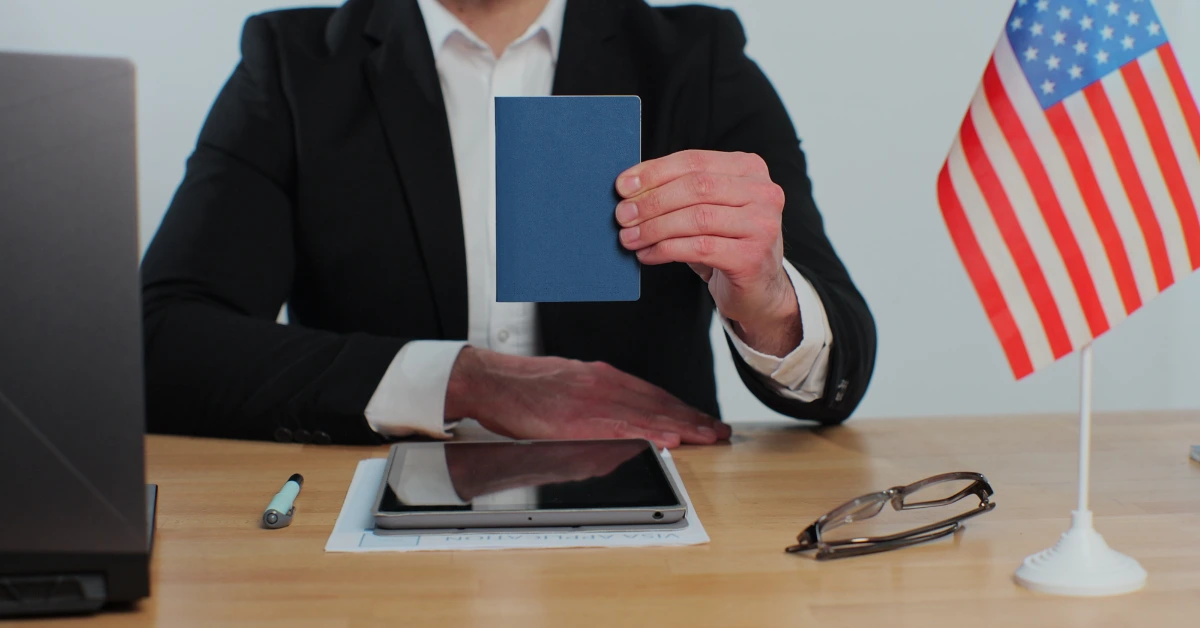Remitforex – The Money Transfer Expert
Remitforex – The Money Transfer Expert



This visa category is meant explicitly for nonimmigrant students who wish to pursue overseas education and enrol in educational programs within the United States. The F-1 Visa (Academic Student) permits individuals to enter the United States as full-time students at accredited academic institutions such as colleges, universities, seminaries, conservatories, academic high schools, elementary schools or language training programs. It is the most common visa type for international students attending U.S. colleges, universities, language schools, or other academic institutions authorized by the U.S. government.
To become a full-time student in the United States, you typically require a student visa. Two types of nonimmigrant visas are available for individuals looking to study in the U.S., known as the F and M visas. To qualify for either F-1 or M-1 visa, you must satisfy the following conditions:
To be eligible for a student visa in the United States, you must meet the following requirements:
You must be accepted into a recognized U.S. educational institution that the U.S. government authorizes to enrol international students.
After being accepted, the educational institution will provide you with a Form I-20, which is the Certificate of Eligibility for Nonimmigrant Student Status. You need to submit this document when applying for a visa.
To stay in the United States, you need to show that you have enough money to pay for your tuition fees, living expenses, and any other relevant costs.
Demonstrate strong ties to your home country, such as family, employment prospects, or property ownership.
English Proficiency
You may need to undergo a medical examination to ensure you meet the health requirements for entry into the United States.
Once you obtain Form I-20 from your educational institution, you need to fill out the Nonimmigrant Visa Application (Form DS-160) online and pay the mandatory visa application fee. Additionally, arrange for an interview at the U.S. embassy.
F-1 visa rejection reasons are listed below:
A student’s nationality is a significant factor in determining the approval or US student visa rejection. Individuals from economically and politically developed countries like Germany and Australia typically encounter no obstacles. However, those from third-world nations, including Congo, Uzbekistan, and Afghanistan, may face barriers in obtaining approval for their visas from the U.S. Department of State. When applying for an F-1 student visa, the decision to approve or deny the visa application rests with the consular officer who conducts the interview.
Visa or immigration applicants need to have all the necessary documents as they provide evidence for their application. One of the reasons why F-1 student visas get denied is the submission of suspicious, incorrect or missing documents during the application process. The consular officer relies on these documents to evaluate your eligibility and intentions to study in the United States. If there are any doubts or concerns regarding the authenticity, completeness or accuracy of your documentation, it may lead to a visa denial.
Financial instability can be a significant issue for students applying for an F1 visa. While the U.S. Consulate officers do not expect students to have enough liquid assets to cover the entire program’s expenses, they must have enough funds to cover the first academic year. If there are no sufficient funds as listed on the I-20 or DS-2019 form, the F1 visa application will be rejected. Therefore, providing evidence demonstrating the availability of liquid assets and the student’s ability to pay for the first year of their academic program is crucial.
You must perform well in an F-1 student visa interview to increase your chances of obtaining the visa. This interview is vital to the visa application process because it allows the consular officer to assess your eligibility and intentions for studying in the United States. If you cannot provide satisfactory answers or documentation during the interview, it may raise doubts about your suitability for the visa. Poor performance in the interview can lead to rejection; in such cases, candidates should reflect on their interview skills and identify areas for improvement.
Submitting your F-1 student visa application late may not be a direct reason for visa denial. However, it can have indirect consequences that may lead to visa denial. If you apply late, the consular officer may not have enough time to review your application, conduct an interview, and decide before your intended program start date. As a result, your visa may be denied due to the inability to process it within the available timeframe. Also, embassy and consulate appointment slots for visa interviews are limited and can fill up quickly, especially during peak application seasons. Applying late may make it difficult to secure an appointment within your desired timeframe, leading to delayed processing or missed program start dates.
When applying for an F-1 student visa, it’s common for denials to occur due to insufficient evidence of your intent to return to your home country after completing your studies in the United States. To be approved, the consular officer must be convinced that your main goal is to study in the U.S. temporarily and that you will return to your home country after finishing your program. If they believe you have limited educational or career prospects in your home country, they may question your motive to return.
If your F1 visa is rejected, it cannot be appealed and is considered final. However, you can reapply as many times as necessary until you are approved to study in the USA. If you are unsure what to do after your F1 visa is rejected, here are the steps required to take when reapplying.
When an F1 visa application is denied, there can be several reasons for it. The candidate will receive a rejection letter with the specific reasons outlined. To move forward, the candidate must identify and rectify the issue, ensuring that it is not repeated in future applications to increase the chances of approval.
Suppose the issue relates to meeting essential eligibility requirements, such as insufficient savings or lack of clarity regarding the student’s intention to return home after their stay. In that case, they may be able to resolve it independently. However, if the problem is legal, it is recommended that they seek assistance from a lawyer or the relevant official in charge.
After addressing the reason for denying their F1 student visa, the student must reapply, pay the application fee, and schedule a visa interview. Check the website Visa reapplication process of the U.S. Consulate and Embassy regularly for updates on the . Ensure to prepare adequately for the interview and arrive on time. It is advisable to reapply with new information that can convince the visa officials that they deserve the F1 student visa. However, if the rejection is for another reason, students should seek assistance from immigration officials.
Start the application process early:
It is recommended to apply for a visa to the USA at least three months before the departure date. It allows sufficient time to complete the application process.
Understand the visa requirements:
It is vital to ensure that all original documents required to prove financial stability, academic records, and any other evidence requested by visa officials are collected and produced. These documents mustn’t be forged.
Practice for the visa interview:
Preparing thoroughly for the visa interview and answering questions directly and convincingly is advisable. Arriving before the scheduled time for the interview is also recommended.
Demonstrate strong ties to your home country:
It is essential to demonstrate strong reasons for studying in the USA, the specific university/college, and the intention to return home after completing the course.
Show sufficient financial support:
Candidates should ensure they are financially secure, as lacking financial support may result in a visa denial. Sufficient liquid cash and documents should be available to prove the ability to meet expenses for at least the first academic year. Applications that do not demonstrate financial stability are often rejected.
Seek guidance if needed:
If you have any concerns or questions, consult your designated school official or an immigration attorney for guidance and assistance throughout the visa application process.
You can apply for a visa as many times as you need to without any limits. However, if you decide to study abroad, then reapply, providing new information and potential solutions to any issues identified in your previous application is important. Simply reapplying without any further information would be unproductive and increase the likelihood of being refused for the same reasons as before.
Please don’t give up; let’s Fly!
Please reach to us if you need any help: https://remitforex.com/services/assistance-for-overseas-education.html




